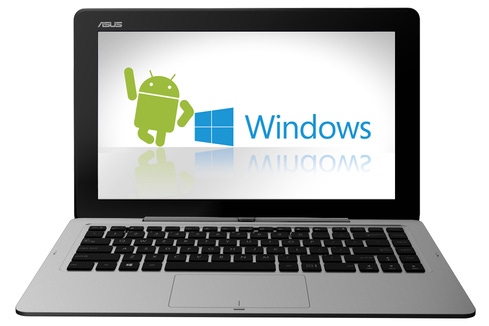Intel may be the biggest loser if Asus cancels dual Windows-Android devices due to operating systems makers' objections.


Mobile World Congress: 5 Hot Gadgets
Mobile World Congress: 5 Hot Gadgets (Click image for larger view and slideshow.)
Asus's introduction of the Transformer Book Duet TD300 at the Consumer Electronics Show earlier this year was a big deal. Brian Krzanich, Intel's CEO, joined Asus on stage and helped show off the convertible, a dual-boot machine that could run both Microsoft's Windows and Google's Android operating systems. Asus envisioned it would be a work machine by day and a personal media device by night. Two months later, it appears the product has become the victim of disapproval from the two OS giants.
Asus has "indefinitely postponed" plans to sell the device, according to sources cited by The Wall Street Journal. The postponement comes after Microsoft and Google made clear to Asus their feelings about such a device. It's no surprise that each platform maker wants devices to run only one platform. There's no incentive for Google or Microsoft to allow the other's OS to coexist on the same machine.
Patrick Moorhead, an analyst at Moor Insights & Strategy, explained there are several ways in which Google and Microsoft can put pressure on their hardware partners. Android may be free to use, but in order to access Google Services -- the Play Store and vital apps such as Gmail, Maps, and YouTube -- hardware makers have to agree to certain restrictions. Google can withhold Play Services if it doesn't like the device, which would all but negate the appeal of the Android OS. Similarly, Microsoft can withhold marketing money if it isn't pleased with what hardware makers do with their gear. Marketing cash is particularly important to OEMs that make low-margin hardware.
[Microsoft is anxious to get more OEMs on its side. Will Microsoft Waive Windows Phone Fees?]
Google declined to comment on the Journal's story, but Microsoft said it "will continue to invest with OEMs to promote best-in-class OEM and Microsoft experiences to our joint customers."
The revelation raises questions about Huawei's plans to offer a dual-boot smartphone that runs both Android and Microsoft's Windows Phone. The company confirmed the plans this week, and said it will sell the smartphone in the US later this year. Will the product even make it to market, though? Will Google and Microsoft exert the same pressure on Huawei that they (apparently) exerted on Asus?
While Asus and Huawei are staring lost R&D dollars in the face, Intel is the biggest loser here. It engineered processors that are capable of running two operating systems, and these chips were to play a crucial role in the dual-boot machines in question. Intel is desperate to gain a significant toehold in the smartphone and tablet space, but is badly trailing competitors such as Qualcomm, Samsung, and others. If there's one thing dual-boot machines offer, it is differentiation. Intel was counting (perhaps too much) on such differentiation to sell devices with its chips inside.
There's also the question of demand for such machines. Are consumers and enterprises actually clamoring for machines that run two operating systems, or are hardware makers foisting them on the market in the hope of creating a niche? What's the real benefit? It could boil down to apps. The number of apps available to Android devices is more than 1 million. Can Microsoft claim the same about Windows 8?
What do Uber, Bank of America, and Walgreens have to do with your mobile app strategy? Find out in the new Maximizing Mobility issue of InformationWeek Tech Digest.
About the Author(s)
You May Also Like







